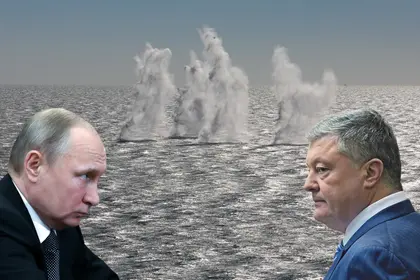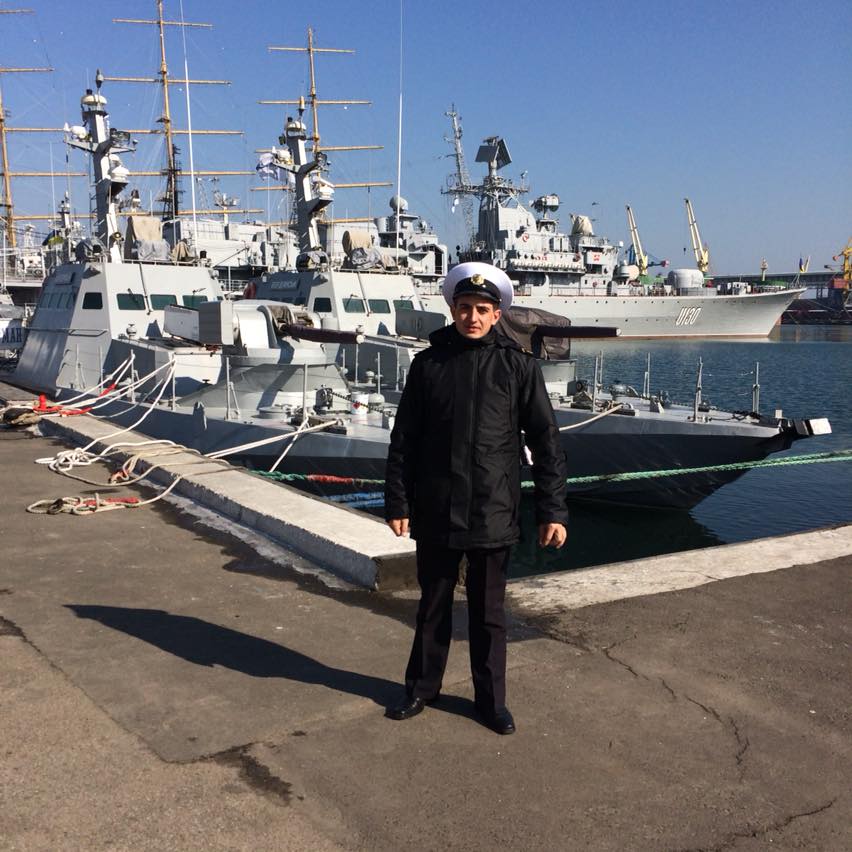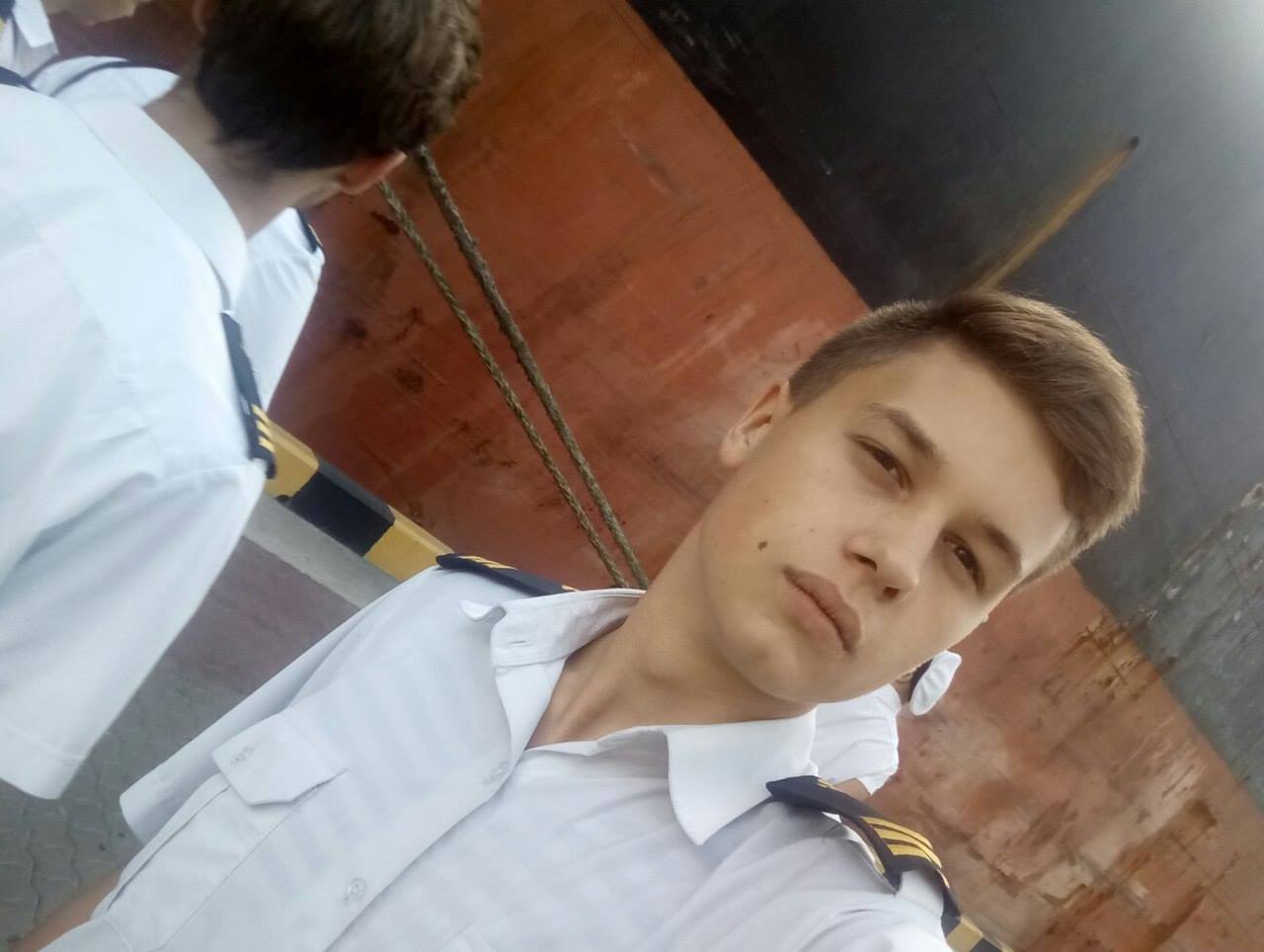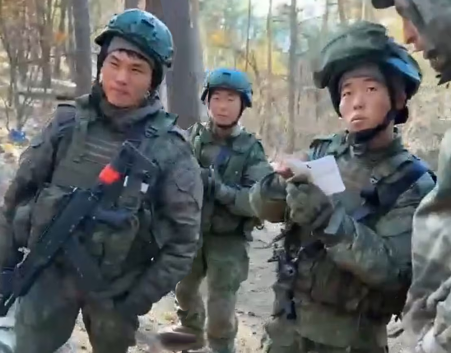The Coast Guard of the Russian Federal Security Service attacked and seized three Ukrainian Navy boats on Nov. 25 after the Ukrainian vessels tried to go from the Black Sea into the Azov Sea through the Russian-controlled Kerch Strait. Six Ukrainian sailors were wounded in the shooting. The three Ukrainian vessels were taken to the port of Kerch in annexed Crimea. Ukrainian Chief of Staff said there had been 23 naval officers onboard Ukrainian Navy boats.
- Check out the newest war in ukraine update in the Kyiv Post’s news pieces published today.
- Obtain the most current Ukraine news articles released today.
The attack came as the culmination of the months-long tensions in the Kerch Strait as Russia de facto seized control of the strait that is supposed to be used commonly by the two nations according to a 2003 bilateral agreement.
JOIN US ON TELEGRAM
Follow our coverage of the war on the @Kyivpost_official.
The Russian authorities claimed that Ukrainian vessels provoked the attack by trespassing the “prohibited area” – although a 12-mile strip they refer to is the territorial waters of Crimea, a Ukrainian peninsula invaded and annexed by Russia in 2014.
Here are the latest developments recorded in Kyiv time (Eastern European Time UTC/GMT+2):
4:12 p.m. The legislation that introduces martial law for 30 days was published in Golos Ukrainy, the government’s official publication, and came into effect.
2:07 p.m. President Petro Poroshenko signed the legislation that introduces martial law for 30 days. It will come into effect when it is published in the government’s official publications.
3.45 p.m. –A court in Russian-occupied city of Simferopol ordered the detention of two of the Ukrainian sailors captured by Russian forces on Nov. 25. The sailors are to be detained for two months, until Jan. 25, 2019, and are then expected to face trial.
2.27 p.m. – Kyiv Post’s sources in Ukraine’s military have confirmed that the actual number of captured Ukrainian servicemen was 24 rather than the 23 reported initially.
2.20 p.m. – Dozens of Crimean Tatars came up to the building of Kyiv District Court of Simferopol, a city of some 300,000 people in Russian-occupied Crimea to support 12 Ukrainian sailors, Crimean authorities are going to trial on Nov. 27. Lyudmila Lubina, Russian-backed Crimean Human Rights Ombudswoman told journalists that another 11 sailors will face trial in the same court tomorrow. Four Crimean Tatar lawyers have agreed to defend illegally detained Ukrainian sailors in court.
1 a.m. – Russian authorities released a video showing three Ukrainian sailors from the seized boats giving their accounts of how their vessels were stopped by the Russian ships. Each of the three sailors – Andriy Drach, Serhiy Tsybizov, Volodymyr Lisoviy – represents one of the three Ukrainian vessels. They are recorded separately, each in a different setting. Their stories contradict the previous account by the Ukrainian government. Two of them say their vessels tried to go into the Kerch Strait ignoring the Russian ships’ orders to stop.
Ukraine’s military commandment said the sailors must have testified after pressure or tortures, and their testimony must be viewed “with understanding” of these factors.
10:06 p.m. – The Verkhovna Rada approved a resolution urging the West to stop Russian aggression, provide military aid to Ukraine and send observers and warships to the Black Sea and the Sea of Azov.
9:39 p.m. — The Verkhovna Rada approved scheduling presidential elections for March 31.
9:34 p.m. — With 276 votes, Ukrainian parliament has approved imposing 30-day martial law starting from Nov. 28 until Dec. 27 in 10 regions bordering with Russia and Moldova’s Russian-occupied Transnistria region or at the Black Sea and the Azov Sea. The regions are Odesa, Mykolayiv, Kherson, Zaporizhzhya, Luhansk, Donetsk, Sumy, Kharkiv, Chernihiv, and Vinnitsya.
7:20 p.m. – NATO held an emergency meeting at the request of Ukraine. Secretary General of NATO Jens Stoltenberg said there was no justification to the Kremlin’s actions and called for release of Ukrainian Navy boats and sailors, Reuters reports.
In an live interview to BBC World Service, Stoltenberg said that Ukraine is a close partner of NATO, and the organization provides strong support to the country.
“What we saw yesterday is a reminder that there’s a war going on in Ukraine for four years,” he said adding that he will meet with Ukraine’s Foreign Minister Pavlo Klimkin in Brussels next week to discuss security situation in the Black Sea.
“We have increased NATO presence in Black Sea region with more troops on the ground also air policing and naval presence. We have three member states around Black Sea: Turkey, Romania, Bulgaria… and our close partners Ukraine and Georgia.”
6:50 p.m. – The United Nations Security Council holds an emergency meeting on Russia’s aggression against Ukraine’s navy forces off of the Crimean coast.
Emergency UN Security Council meeting after Russia seizes Ukrainian vessels LIVE: Emergency UN Security Council meeting after Russia seizes Ukrainian vessels off coast of Crimea. https://nbcnews.to/2FHaL8A Publiée par NBC News sur Lundi 26 novembre 2018
5:29 p.m. – The Court of Simferopol in Crimea will rule on preventive measures for the captured Ukrainian sailors on Nov. 27, according to RIA Novosti, Russian state-operated news agency, that cites the court. The Ukrainian sailors are accused of illegal crossing of Russia’s border.
5:05 p.m. – President Petro Poroshenko, in a video address, called the lawmakers to support martial law, but reduced it to 30 days instead of the originally proposed 60 days. A 30-day martial law, if not prolonged, isn’t supposed to affect the 2019 presidential election, the campaign for which is scheduled to start on Dec. 31.
4:42 p.m. – A total of 338 lawmakers have registered for the emergency session of parliament to debate President Poroshenko’s martial law bill. The lawmakers of the 21-member Radical Party blocked the parliament, demanding a meeting with Poroshenko. The parliament went on a break.
4:37 p.m. – OSCE Parliamentary Assembly President George Tsereteli expressed deep concern today over the escalation of tensions in the Kerch Strait between the Russian Federation and Ukraine, called for restraint, and reiterated support for Ukraine’s territorial integrity.
“The seizure of Ukrainian naval vessels and the blocking of traffic into the Kerch Strait by Russia represents an unacceptable escalation of tensions between two participating States of the OSCE,” Tsereteli said. “Further steps that might lead to a military escalation must be avoided. Russia must avoid provocative acts, return the detained vessels to the Ukrainian authorities, and release any detainees in its custody.
“I also reconfirm the position of the OSCE PA, as expressed in several resolutions, regarding our strong support for Ukraine’s sovereignty and territorial integrity within its internationally recognized borders, including the autonomous Republic of Crimea and Sebastopol, and call on both sides to recommit to fully implementing the Minsk agreements in order to resolve the crisis. The OSCE PA will continue to watch the situation closely.”
4:35 p.m. – It seems like the martial law decree in the form proposed by the president may not be approved. According to Bloc of Petro Poroshenko lawmaker Mustafa Nayyem, there are three points that require a compromise: The implementation of martial law for only one month, instead of two; a relaxation of the proposed limits on the rights and freedoms of citizens; and the stipulation in the decree that the presidential election will indeed be held on March 31, 2019. “If all of these changes are implemented, then martial law is a quite acceptable measure in response to Russia’s aggression,” Nayyem wrote on Facebook.
4:31 p.m. – Ukraine’s parliament voted not to conduct debate on martial law in closed session, so public can now see what is going on in Rada, which is… nothing: Radical Party leader Oleh Lyashko is blocking the parliament tribune, holding up proceedings.
4:05 p.m. – Ukrainian President Petro Poroshenko has published a decree on his website endorsing the proposal of Ukraine’s Security and Defense Council to impose martial law in the country, as an answer to Russia’s act overt act of aggression in the Kerch Strait. The decree will be debated in a closed session of parliament from 4:00 p.m.
The council’s decree stipulates that:
- Russia’s act of aggression was a violation of the United Nations General Assembly Resolution 3314 dated 1974, particularly the document’s paragraphs C and D.
- That Ukraine needs to introduce a special legislation regime to protect its independence, integrity, and sovereignty.
- That martial law shall be in force from 2 p.m. Kyiv time on Nov. 26, and that it shall last for 60 days until 2.25 p.m. on Jan. 25, 2019.
- That Ukraine’s Ministry of Foreign Affairs shall appeal to the United Kingdom and the United States as nations that guaranteed Ukraine’s security under the Budapest Memorandum of 1994. It will also appeal to the United Nations Security Council, the Organization for Security and Cooperation in Europe, as well as the European Union and other friendly nations and organizations
- That both Ministry of Foreign Affairs and Ministry of Information Policy shall immediately organize an information campaign regarding Russia’s act of aggression among foreign governments and influential political, economic, and civil actors.
- That Ukraine’s Ministry of Defense and the General Staff shall revise the mobilization plan of the Armed Forces.
The General Staff must submit its proposals to the president on the use of military units to organize air defenses to protect the country’s industrial assets and government centers. The General Staff is also charged with submitting measures on partial mobilization and to hold drills of reserve personnel.
Besides, the principal law-enforcement agencies subordinated by the Ministry of Foreign affairs, and also the Security Service (SBU) were ordered to enforce civil order, and ensure the security of critical infrastructure and foreign diplomatic institutions.
The SBU is also to step up its counter-intelligence, anti-terrorism, and counter-sabotage activities, as well as boosting security in cyberspace.
Lastly, the State Border Guard Service step up protection of the state border and the administrative border with Russian-occupied Crimea.
The final, 12th article of the decree is classified as secret.
4:01 p.m. – Colonel Richard Kemp, a former Commander of British Armed Forces in Afghanistan, said on Twitter that NATO must respond robustly to Russian aggression in the Sea of Azov. “In addition to increased sanctions & military technical support, NATO should immediately deploy warships to the Sea of Azov to guarantee freedom of navigation,” he said.
3:57 p.m. – An alleged radio intercept of dialogue between Russian vessels in the Kerch Strait and Russian navy commanders in Moscow, shared by the Ukrainian military, seems to debunk accusations that Ukrainian vessels initially provoked Russian ships during Nov. 25 clashes on the Azov Sea. In the recording, Russian sailors receive orders to “hit them,” “ram them” and “damage all of them”. Another Russian captain says “maybe four of us all together can hit one, then the second one,” another sailor responds that it’s not possible because the Ukrainian vessels are maneuvering: “when I approach him, he’s moving away, turning board-side and moving away.” In a possible reference to Kremlin drama, a Russian captain says the ships should act quickly to deal with the Ukrainian boats: “we should assault them, we have to destroy them, f**k! Medvedev is in panic. Seems like the President is controlling all this sh*t.” Later in the recording, Russian naval officers seem to discuss the imminent arrival of Spetznaz special forces soldiers: “ten guys with cool skills are coming,” one officer says, “they will come by air in fifty minutes, maybe an hour,” he said.
3.55 p.m. – The defense and national security committee of the Ukrainian parliament recommended lawmakers to pass Poroshenko’s proposed martial law decree.
3:46 p.m. – Timothy Ash, longtime London-based Ukraine analyst, writes:
“Battle in the Sea of Azov plays well for (President Petro) Poroshenko. Opportunity to delay elections until next fall to wrong foot (Yulia) Tymoshenko. Maybe (Svyatoslav Vakarchuk was right not to declare his candidacy!
3:39 p.m. – From Kyiv Post’s interview with Hanna Hopko, an independent member of Ukraine’s parliament who chairs the Verkhovna Rada’s Committee on Foreign Affairs, back in Aug. 27:
“There is militarization of the Azov Sea, and Russia is well equipped with rockets to bomb us – everything is prepared. But they have other techniques as well. With the Kerch bridge, now it’s (more difficult for) ships to move from Mariupol and Berdyansk. And besides this, there are agriculture sector companies… and Russia wants to use the vulnerability of trade and ships… as this also creates a serious pro-Russian mood (in the region).
“The key now is to increase international attention to prevent potential attempts of Russia to escalate the situation in the Azov Sea and especially in very socially vulnerable cities like Mariupol, Berdyansk, and Henichesk. It’s also important to raise and bring more international delegations to eastern Ukraine to show real war… to raise the issue in front of the international community so that there is a proper response, if Russia completely shuts off Ukraine’s passageway.”
3:09 p.m. – Russian Foreign Minister Sergey Lavrov has just held a press conference, during which he described Russia’s attack on the three Ukrainian navy vessels on Nov. 25 as “a provocation.” In the Kremlin’s view, this, however, was a “provocation” by Ukraine against Russia. All the same, video evidence of part of the incident strongly indicates that a Russian coast guard ship deliberately rammed a Ukrainian military tug, and Russia was in the wrong. Lavrov also claimed “martial law (in Ukraine) is an attempt to distract people from the upcoming elections, after the implementation of which Ukrainian radicals will have their hands untied to create provocations in the Donbas.”
3:06 p.m. – The Permanent Council of the Organization for Security and Cooperation in Europe, or OSCE, will convene a special session today in Vienna at 16:00 CET to discuss “Russia’s aggression against Ukraine”, according to the US mission to the OSCE, posting on Twitter.
2:45 p.m. – President of the European Council Donald Tusk announced on Twitter that he had discussed Russia’s attack on Ukrainian Navy vessels near the Kerch Strait with Ukraine’s President Petro Poroshenko. “I condemn Russian use of force in Azov Sea. Russian authorities must return Ukrainian sailors, vessels & refrain from further provocations,” his tweet reads. Tusk said he would meet Ukrainian president’s representatives later in the day. “Europe will stay united in support of Ukraine,” he added.
2:06 p.m. – Admiral Ihor Voronchenko, chief of the Ukrainian Navy, said that the Ukrainian cutter crew attacked by Russia did not return fire so as not to provoke the Russians and to avoid battle. Voronchenko said that the Ukrainian vessels were within the 12-mile zone of territorial waters. Of course, Crimea and its 12-mile coast belong to Ukraine, while Russia is illegally occupying the pensinsula since its military invasion and claims it as their own.
2:00 p.m. – Alina Polyakova of Brookings Institution tweets about Moscow’s likely motivations for its military escalation in the Azov Sea and blockade of Kerch Strait: Putin’s declining approval ratings, 82 percent in April to 66 percent in October. They tend to coincide with new foreign policy adventures to divert domestic pressure, she writes.
1:51 p.m – Andrii Klymenko, chief editor of the Black Sea News website, posted on Facebook new information about the incident in the Kerch Strait on Nov. 25. The initial ramming was in Ukrainian territorial waters (falsely claimed by the Kremlin as Russian), near the Kerch Strait. The three Ukrainian vessels then fled for international waters but were stopped just before escaping, Klymenko says.
1:25 p.m. – Verkhovna Rada Deputy Speaker Oksana Syroyid argued in a Facebook post on Nov. 25 that the authorities had not introduced martial law previously after Russia invaded Ukraine in 2014 because they did not deem it to be politically expedient.
“But today they realized that martial law in the whole territory of Ukraine is a wonderful opportunity to manipulate presidential elections and, if necessary, introduce a bit of dictatorship,” said Syroid, who represents the Samopomich party.
Syroid said on Nov. 26, however, that martial law was necessary and should have been introduced in 2014 in Crimea and Donetsk and Luhansk oblasts.
“We shouldn’t be afraid of martial law,” she said. “We should be afraid of people who want to use it.”
1:15 p.m. – The Russian attack in the Black Sea near the Kerch Strait has already alarmed the Azov Sea fishermen, Valeriy Motora, the captain of Mariupol Fish Port told the Kyiv Post on Nov. 26.
“We’re trying to decide what to do and whether we all are safe to go fishing. My sailors are afraid they will have no money to feed their families,” Motora said.
Motora said the crews were fishing closer to the Ukrainian controlled coasts of the Azov Sea since Aug. 15, the start of the new fishing season in the Azov, so they didn’t get to witness the Nov. 25 attack. Fishermen were afraid to get closer to the Kerch Strait since in May Russians arrested Ukrainian fishing boat in the Black Sea for poaching. Many saw it as a revenge for the March arrest of the Crimean fishing vessel Nord by Ukrainian Coast Guard.
12:56 p.m. – National Bank of Ukraine’s Governor Yakiv Smoliy says that the central bank is ready to back the hryvnia if necessary, according to the NBU’s website.
12:25 p.m. – Ukrainian government bonds plunge to their weakest level since issuance, according to Bloomberg news agency.
12:51 p.m. – Russian propagandist Dmitry Kiselyov’s show claims that the Kerch Strait incident is a provocation ordered by the United States.
12:45 p.m. – Lviv Mayor Andriy Sadoviy, leader of the opposition Samopomich Party, looks to support introduction of martial law. “I propose we put aside questions of hidden motives (for introducing martial law)… We will ask lots of questions at the appropriate time…”
12:21 p.m. – The Armed Forces of Ukraine have published the names of three Ukrainian Navy sailors that were injured during the attack of the Russian ships. The sailors are now staying at the hospitals in Russia-occupied Crimea. They were:
Vasyl Soroka, 27, from Novoukrainka, a town in Kirovohrad Oblast
Andrii Artemenko, 24, from Odesa, a city in southern Ukraine
Andrii Eider, 18, from Odesa, a city in southern Ukraine
12:16 p.m. – Russian opposition leader Alexei Navalny quipped on Twitter, making fun of Russian propaganda: “In the upcoming month, we’ll see 30 talk shows per day discussing ‘the aggressive Kyiv military backed by hawks from the Potomac’. This decision by (Russian dictator Vladimir Putin) was expected due to a major drop in his approval rating.”
11:40 a.m. Protests have been taking place next to the Russian embassy and consulates in Kyiv, Lviv, and Kharkiv. In the early hours on Nov. 26, far-right protesters rallying next to the Russian Embassy in Kyiv set on fire a car carrying a diplomatic registration plate parked near the embassy.
11:30 a.m. Russian authorities say that six Ukrainian sailors that were injured as the Russian Coast Guard ship shot and rammed the Ukrainian vessels on Nov. 25 are “in a stable condition and are feeling great.”
You can also highlight the text and press Ctrl + Enter





